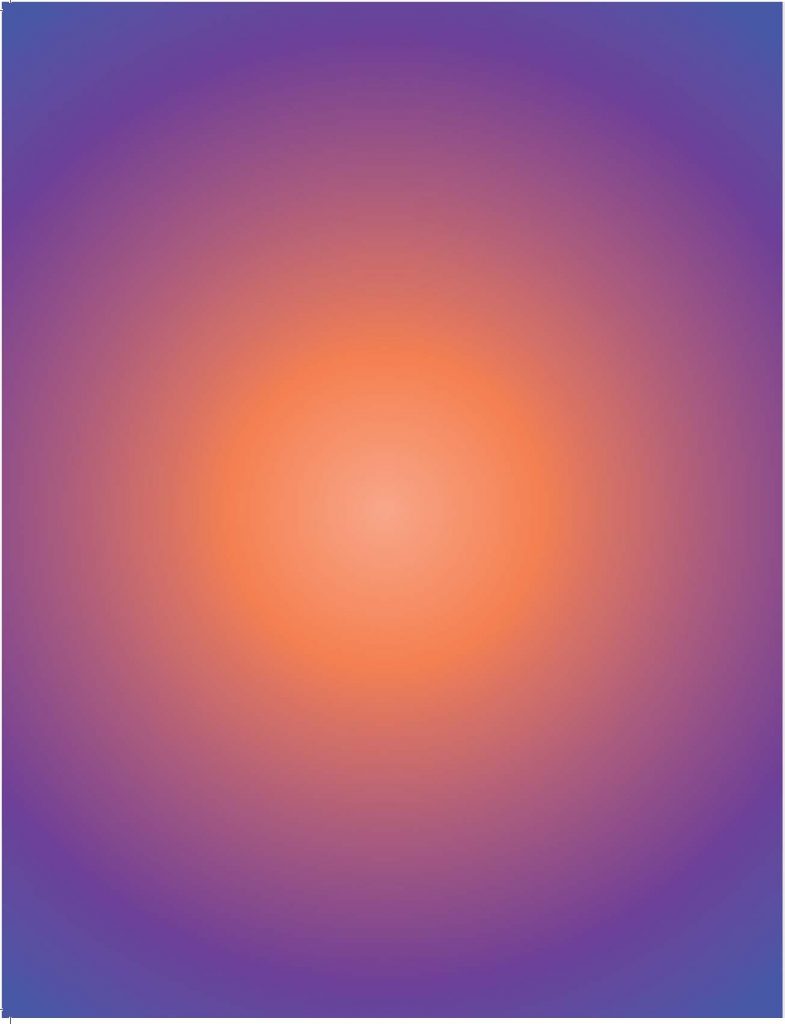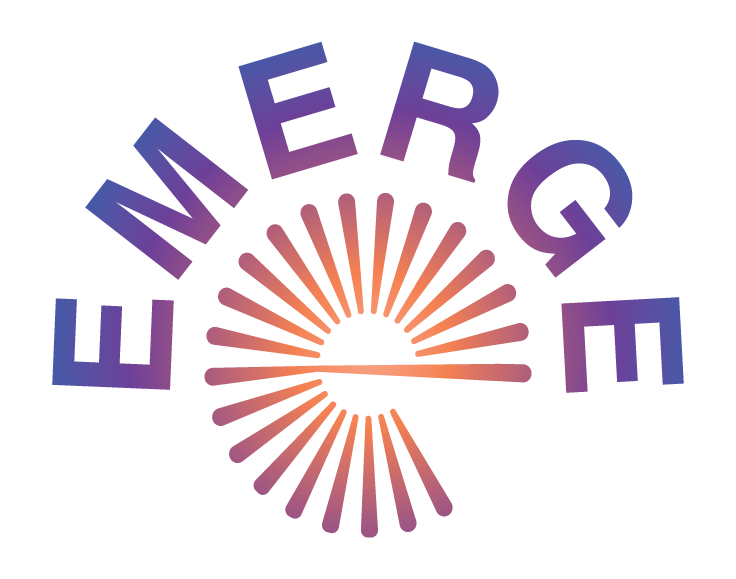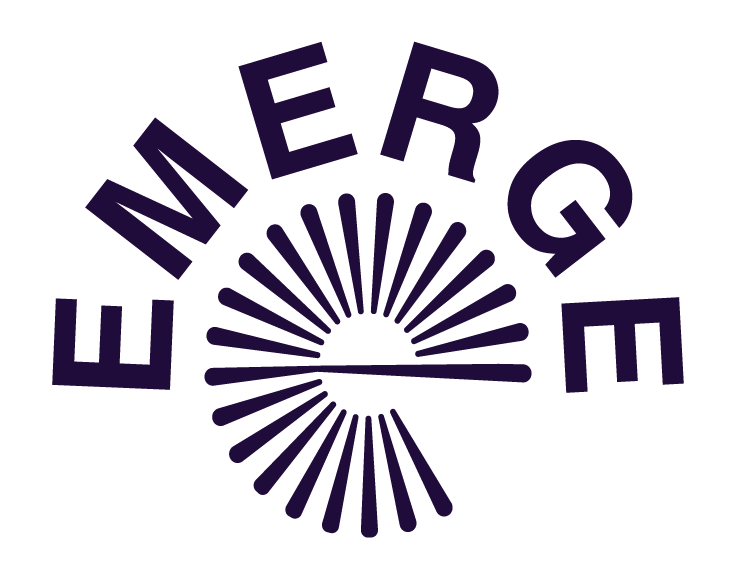The Change Issue
2023
Another world is not only possible, she is on
her way. On a quiet day, I can hear her breathing.
— Arundhati Roy
Editor’s Note
We started working on this issue in the fall of 2021, it was the beginning of our first semester in the Arts Administration and Policy Master’s program at the School of the Art Institute of Chicago (SAIC). Then, neither of us had been students for years, and we hadn’t co-existed in such a vast artist community since before the pandemic. Masks were (and still are) mandatory, our vaccination status was closely monitored, and our interactions felt conditioned by a fear of contagion. It was as if the masks we wore between our mouths and the air were manifesting themselves as a barrier in our ability to build a community.
Since the beginning, this issue of emerge was focused on “change,” and among the myriad of directions this issue could have gone in, we decided to direct our attention on how to deal with this barrier in a variety of other situations outside of our privileged academic context. We clung on to the word breathing for guidance, partly inspired by Franco Berardi’s ideas on how the breath can stimulate a new path for a society who is no longer in tune with its biological rhythms. If inspiration is another word for breath, how can we breathe together, how can we co-inspire? Is this return to the physical world an opportunity to be mindful of other people’s rhythms–of the inhalations and exhalations that occur in beats outside of our own?
To ground change, transmutation, metamorphosis, and transubstantiation in arts administration, this issue focuses on creative leaders who are working with improvisational practices, using their intuition, encouraging flexibility, and growing from neoliberal and patriarchal paradigms. The artwork and poetry populating these pages are the result of an open call to SAIC students for creative work related to change, improvisation, and co-inspiration. Finally, much of our editorial and fundraising efforts were dedicated to printing this issue in hopes that the work will be circulated within other arts administrators around the world. Take this copy, read her out loud, skim, read her quietly, take notes, draw, and pass along to a friend.
We are enormously grateful to Adelheid Mers, Chair of the Art Administration and Policy Department; to Asha Iman Veal, our Editorial Advisor; to Benita Nnachortam who helped conceptualize the issue; to the vulnerability, patience, and generosity of our creative contributors; and to all of the individual SAIC departments who supported our project.
— Marielle Mervau and Inés Arango Guingue, Editors.

Editor-in-Chief: Inés Arango Guingue
Inés Arango-Guingue is a curator, artist and writer from Bogotá, Colombia. Believing in art’s potential to mobilize ideas and shift paradigms, Arango-Guingue engages with contexts that explore non-rationality as a change-inducing practice, and explores curating as a community-building practice. Her recent research centers the power of invisibility, magic and opacity. She has organized exhibitions in Bogotá, New York City, Barranquilla, and Cali, and directed artists’ spaces, residencies and art education programs. She has worked with León Tovar Gallery in New York City, Museo del Banco de la República in Bogotá, and as Assistant Curator of Athénée Press. She recently curated and facilitated Fantasmas Y Paratexto (Ghosts and Paratext) at Museo del Banco de la República in Bogotá, a five-month long residency and exhibition program financed with a grant awarded by the city of Bogotá. As part of the School of the Art Institute of Chicago’s Master of Arts Administration and Policy’s 2023 cohort, Inés is co-editor of the department’s journal, Emerge and a Graduate Fellow of SAIC’s Institute for Curatorial Research and Practice.
Associate Editor: Marielle Mervau
Marielle Mervau (she/her) is an organizer and arts administrator based in Chicago, IL. Prior to relocating to Chicago, Marielle was the Curatorial Associate and Visitor Engagement Manager at the Institute of Contemporary Art, San Jose. Currently, she is the Grants Manager at Comfort Station and the co-founder of Companion Cooperative. Marielle is pursuing a Master’s Degree in Arts Administration and Policy from the School of the Art Institute of Chicago (SAIC). At SAIC, she is the Associate Editor of the Art Administration Department’s Emerge Journal and previously served as a board member for the grantmaking “Enrichment Fund.” Marielle’s research interests include cultural policy, solidarity economies, funder relations, and the non-profit lexicon.
Web Design: Lindsey Hayakawa
Lindsey Hayakawa is a nonprofit administrator originally from Pittsburgh, Pennsylvania, and currently living and working in Chicago, Illinois. She received her Bachelor of Fine Arts in Ceramics and Art History Minor from Pennsylvania State University in 2012. Since 2015, Hayakawa has worked in development, fundraising, and communications for Sojourner House, a Pittsburgh-based nonprofit organization that provides housing and addiction treatment services to families, specifically mothers with children. Hayakawa has over seven years of experience in executive level administrative support, donor database management, coordinating fundraising events, design project management, as well as grant writing and funding research. She is currently working as a graduate assistant for the Department of Arts Administration and Policy at the School of the Art Institute of Chicago, where she is pursuing a Master of Arts in Arts Administration and Policy.
Acknowledgements


